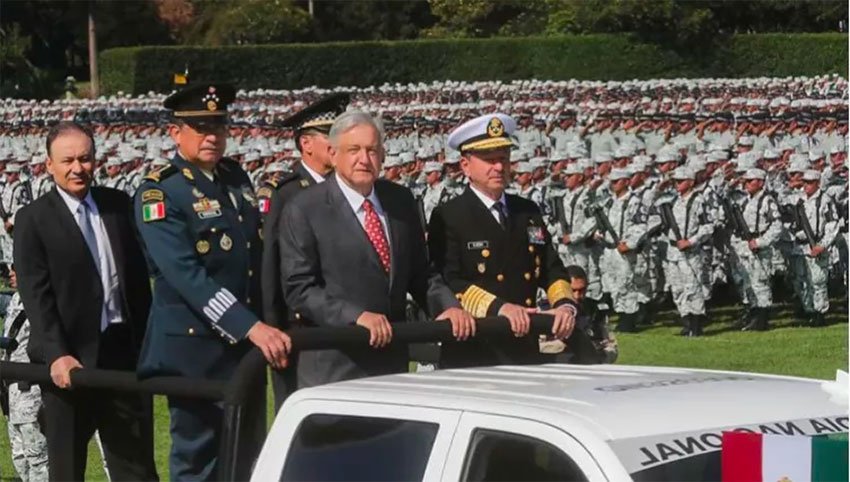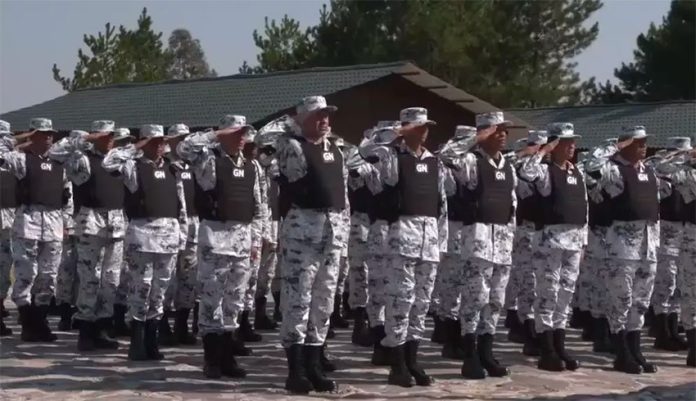An average of 94 homicides per day made the first half of the year the most violent on record, and security specialists are not optimistic that things will improve in the final six months of 2019.
There were 17,065 victims of homicide and femicide between January and June, according to National Public Security System statistics for the first five months of the year combined with figures for June that were published daily by the Secretariat of Security and Citizens Protection (SSPC).
The government’s preliminary figures have underestimated the actual number of homicides by 20% this year but even so the figure above is 3% higher than the 16,585 murders recorded in the first half of 2018, which ended up being the most violent year on record.
When the 2,879 homicides recorded in December are added to the murder figures for this year, the total number of victims of violent deaths since President López Obrador took office is almost 20,000.
If the SSPC trend of underestimating homicide figures by 20% occurred again in June, not only will the total number of murders during López Obrador’s government exceed 20,000 but last month will go down as the most violent on record with more than 3,000 victims.
“The last year of [the administration of] former president Enrique Peña Nieto was bad in terms of the crime rate but 2019 is on the path to being [even] worse,” said security specialist Ricardo Márquez Blas.
“. . . It’s important to understand that we’re doing worse [in security] than the worst year [on record],” he added.
The states that have recorded the highest number of homicides during the seven months the government has been in office are Guanajuato, México state, Jalisco, Baja California, Chihuahua, Veracruz, Mexico City and Guerrero.
The Jalisco New Generation Cartel (CJNG), considered Mexico’s most powerful criminal organization, and the Santa Rosa de Lima Cartel are engaged in a turf war in Guanajuato to control fuel theft, extortion and kidnapping.
In México state, which currently ranks as the second most violent entity in the country, the CJNG, the Familia Michoacana, the Caballeros Templarios, the Gulf Cartel and the Nuevo Imperio gang are all fighting to control the drug trafficking trade, according to a report in the newspaper El Universal.
With cartel wars also raging in other states, Márquez believes that the murder rate will not decline by October, the month by which López Obrador forecast that the government’s security strategy will begin to yield results.

“In October, when we reach six months [since the president’s promise], there will be no essential downward change in terms of the crime rate, particularly for homicides. It’s going to continue, the statistics show that,” he said.
The security expert challenged the president’s claim that the deployment of 70,000 National Guard troops will improve the security situation, stating that “there were already 63,000 elements of the armed forces [engaged] in security tasks and that hasn’t had any positive impact.”
Márquez added that “the best example” of the failure of military personnel – which also make up the majority of National Guard members – to combat crime is Tijuana, Baja California.
“Kidnapping and femicides have gone up, and that has to do with the lack of resources. There is no priority in terms of investing [ in security] . . .” he said.
The director of the National Citizens’ Observatory, a crime watch group, told El Universal that the security situation has been “serious for a long time” and that a strategy with well-defined actions is needed to combat it. However, Francisco Rivas charged that the government hasn’t presented any such strategy.
“The problem is that this government doesn’t have a strategy, they’ve [tried to] explain . . . that there is a strategy but the truth is that it cannot be confirmed that one exists,” he said.
López Obrador has only shown “good intentions and a series of naiveties,” Rivas charged. “. . . His social policy, as it is set up, will not be able to reduce homicides . . .”
Jorge Alberto Lara Rivera, an academic at the National Institute of Criminal Sciences and a former assistant prosecutor at the federal Attorney General’s Office, charged that members of the government are not all on the same page with regards to security.
In contrast, organized crime groups understand it “perfectly” well, he said, adding that if the government doesn’t design adequate strategies to combat them “we’re going to continue seeing the same results.”
Source: El Universal (sp)
